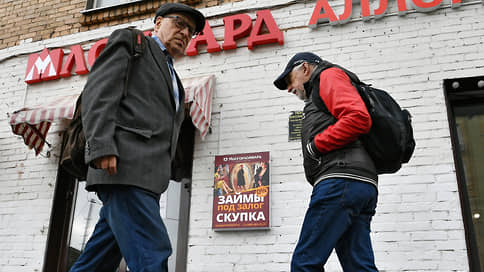An endless cession reached the Bank of Russia
[ad_1]

Pawnshops are asking the Central Bank to allow the industry to transfer collateral through a cession scheme in the event of liquidation or takeover. According to market participants, this will ensure transparency and comfort of procedures for clients of pawnshops who will not be deprived of the opportunity to use their loan – extend it, receive compensation, etc. The regulator is not against the initiative, but it will require legislative changes and additional risk assessment.
Participants in the pawnshop market propose to allow the transfer of collateral in the event of liquidation or takeover of the pawnshop. With such an initiative, the National Association of Pawnshops (NOL) applied to the Bank of Russia at the last meeting of the Expert Council for the Protection of the Rights of Consumers of Financial Services, held on May 30.
The current version of the law “On Pawnshops” and the position of the Central Bank do not allow market participants to transfer a portfolio of loans with collateral in the form of an assignment when selling a business by a pawnshop. This leads to difficulties in the event of liquidation of the pawnshop or its purchase by another player. Among other things, consumers have problems: they cannot renew loans, apply for compensation for the difference between the sale price and the loan amount. For the pawnshops themselves, “the inability to transfer the portfolio leads to the loss of the client base, the loss of a significant amount of time in the transfer of collateral, the withdrawal of pawnshops into the gray zone,” the NOL explains.
Now the portfolio can be bought “only by acquiring or merging with a legal entity-pawnshop”, which carries a large number of legal risks for the buyer, “since small pawnshops often cannot fulfill the entire arsenal of regulators’ requirements,” notes Alexei Lazutin, chairman of the NOL board. Another option for transferring a portfolio could be to reschedule loans as they expire, when both the selling and buying parties work at the same retail facility, he adds.
If the portfolio is transferred by cession, for the consumer, if he initially agrees, the process is “seamless”, believes Mr. Lazutin. The Bank of Russia says that they have no “fundamental objections to giving the pawnshop the opportunity to assign rights (claims) under the loan agreement.” However, the Central Bank clarified that in order to implement the initiative, “careful study is required, including an assessment of possible risks for the borrower.”
The total portfolio of the pawnshop market is currently estimated at 50-60 billion rubles. At the same time, approximately 80% of the market is occupied by network operators. Medium and large players, who suspended their expansion last year, are now returning to active development. The main goal for them is small participants with a total portfolio of 5-20 billion rubles.
Lawyers have objections, who doubt that it is the cession that can protect pawnshop clients from dishonest actions. “In accordance with the norms of civil law, under the assignment agreement, the original creditor (assignor) transfers to the successor creditor everything received from the debtor on account of the assigned claim, and since the subject of the pledge does not belong to the assignor, he cannot transfer it,” notes the managing partner expert group Veta Ilya Zharsky. If he gets such a right, the lawyer adds, there will be risks for the borrower, who will have to “literally look for the property transferred to the creditor.” There are also risks of abuse, when valuable property can be deliberately “hidden” from the borrower by concluding a chain of transactions on the cession market, Ilya Zharsky clarifies.
However, there are risks for clients in the current order. “Most likely, the main way to transfer portfolios now is to acquire shares in the company itself in order to avoid the need to assign rights to a new creditor. And the main risks for clients are that the terms that were originally set with the pawnshop cannot be extended, ”explains Svyatoslav Orlov, senior lawyer at Pen & Paper. At the same time, if the pawnshop is excluded from the register of the Central Bank, then the sale of the unclaimed thing is carried out. In such a situation, the lawyer notes, the rule that “the client has three years to receive payment in the form of the difference between the amount received from the sale of the unclaimed thing and the amount of the borrower’s obligations ceases to apply.”
[ad_2]
Source link





